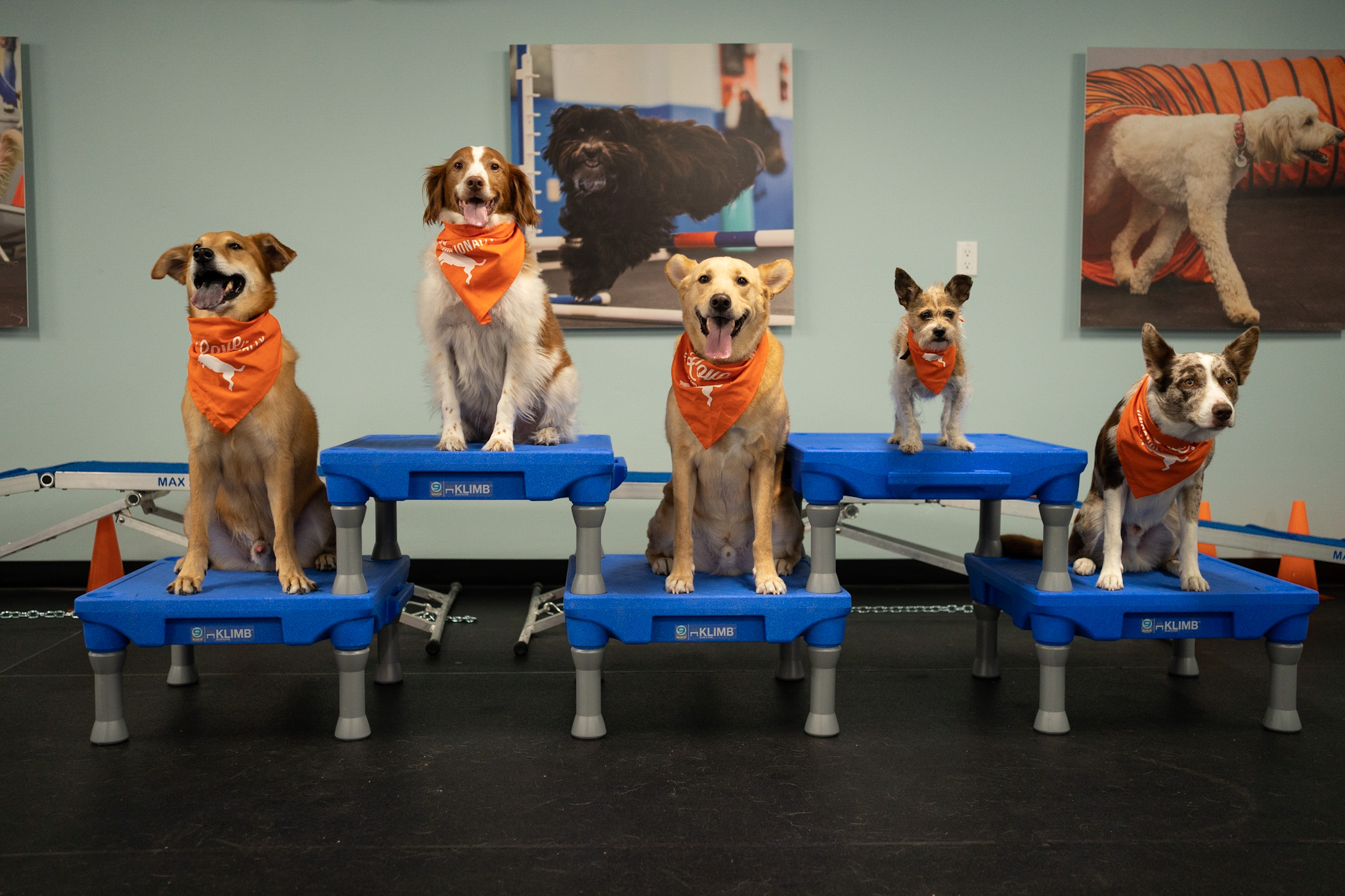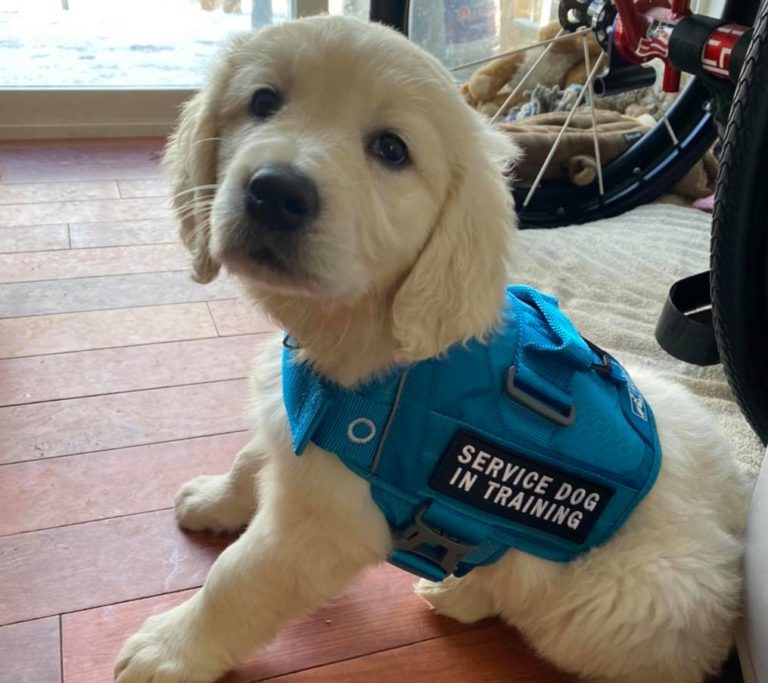Raise Your Skills with Local Dog Training Charlotte Programs
Raise Your Skills with Local Dog Training Charlotte Programs
Blog Article
The Ultimate Overview to Pet Training: Structure a Pleased, Loyal Family Pet
Reliable dog training is a diverse procedure that rests on a deep understanding of canine habits and the application of tested strategies. By welcoming positive reinforcement and constant command usage, family pet proprietors can grow not just obedience however also a strong, trusting relationship with their dogs. Nonetheless, the trip does not finish with basic commands; addressing behavior problems and producing a supporting training environment are equally vital parts. As we discover these components, it becomes evident that the course to a well-behaved and material canine companion may hold extra complexities than one may at first think.

Understanding Canine Behavior
How does a pet's behavior reflect its psychological and emotional state? A canine's actions can serve as a window into its sensations, requirements, and general mental wellness.
Body movement also plays an important duty in comprehending canine habits. An unwinded position and open mouth signal comfort, whereas stressful muscular tissues and pinned ears may recommend anxiousness or aggressiveness. Observing these signals is crucial for recognizing the root triggers of a pet's actions, whether it stems from excitement, disappointment, or fear.
Furthermore, a canine's communication with its atmosphere and various other pets can provide insight into its emotion. For instance, a pet that engages playfully with other pet dogs is most likely feeling safe and social, while one that shows evasion or aggressiveness may be experiencing anxiety or instability. Understanding these behavior hints is vital for promoting a strong relationship between the proprietor and the pet, inevitably adding to the dog's psychological health and wellness and well-being.
Important Educating Techniques
Efficient canine training strategies are essential for cultivating desirable behaviors and strengthening the bond in between a canine and its proprietor. Using positive support is one of one of the most reliable approaches, where rewards such as deals with, praise, or playtime are provided to reinforce desired behaviors (dog training charlotte). This motivates the dog to duplicate those habits, producing a positive learning setting
Consistency is one more important component in pet training. Commands ought to be clear and uniform, and all relative need to use the same regulations to prevent perplexing the pet. Timing is similarly important; incentives need to be provided promptly after the preferred behavior to develop a clear link between the incentive and the activity.
Additionally, appealing and brief training sessions are efficient, as pets have differing focus periods. Go for sessions of 5 to 15 mins, depending on the pet dog's age and energy level. Incorporating play into training can additionally enhance inspiration and satisfaction for both the dog and the owner.
Lastly, persistence is crucial. Pet dogs find out at their own rate, and maintaining a calm disposition will aid ease disappointment, ensuring a favorable training experience. These important techniques prepared for successful pet training and a harmonious partnership.
Standard Commands to Instruct

When educating these commands,Uniformity and positive reinforcement are key. Use deals with, appreciation, and playtime to compensate your pet's successes. Short, regular training sessions are more reliable than long, infrequent ones. By instilling these basic commands, proprietors outfit their pets with the abilities required for a mannerly and harmonious relationship.
Dealing With Typical Behavioral Issues
Recognizing and addressing common behavioral problems in pet dogs is essential for fostering an unified connection between family pets and their owners. Many dogs show actions such as too much barking, eating, or hostility, which can come from stress and anxiety, dullness, or absence of correct training. Determining the origin of these behaviors is the initial action toward effective intervention.
For instance, extreme barking may show a need for interest or a response to ecological stimuli. In such instances, proprietors you can try these out need to assess the canine's atmosphere and offer appropriate psychological excitement, such as interactive playthings or routine workout. Eating can typically be managed by redirecting the actions to suitable chew items and guaranteeing that the pet dog has sufficient exercise to reduce dullness.
Hostile behavior needs cautious handling and may demand professional training aid. It's important web link to comprehend that punishment can worsen stress and anxiety and hostility, resulting in a cycle of behavior problems. Rather, concentrate on favorable support methods to compensate preferable habits and reinforce a sense of security.
Structure a Positive Training Atmosphere
Developing a positive training environment is essential for enhancing preferable actions in pet dogs and minimizing behavior issues. This environment needs to be identified by uniformity, motivation, and a clear understanding of the training objectives. By establishing a regular, pets discover what is expected of them, which helps in reducing anxiety and confusion.
Making use of favorable reinforcement techniques, such as deals with, appreciation, and play, promotes a complacency and motivation in the pet. Rewarding etiquette immediately and consistently enhances the desired activities, making the training procedure much more reliable - Dog training. In addition, fitness instructors ought to remain individual and calm, as pets are sensitive to their handlers' feelings
The training area should be without distractions to ensure the dog can concentrate on the tasks handy. Think about using a silent space or a safe outdoor location. Incorporating playtime and socializing into training sessions promotes a well-shaped technique, improving the dog's learning experience.
Inevitably, a favorable training setting nurtures a strong bond in go now between the canine and handler, bring about an obedient, delighted animal. By prioritizing this setting, family pet owners can efficiently attend to behavior obstacles and grow an effective training journey.
Conclusion
Effective pet dog training counts on a detailed understanding of canine habits and the application of positive support techniques. Embracing these concepts makes sure a rewarding training experience for both pets and their proprietors.
Reliable pet training is a multifaceted process that pivots on a deep understanding of canine habits and the application of tested techniques. A dog that involves happily with other dogs is likely feeling secure and social, while one that exhibits evasion or hostility may be experiencing anxiety or insecurity.Efficient canine training techniques are necessary for promoting desirable actions and enhancing the bond between a canine and its owner.Producing a positive training setting is fundamental for reinforcing preferable behaviors in pet dogs and reducing behavioral issues.Efficient dog training depends on a thorough understanding of canine behavior and the application of favorable support techniques.
Report this page